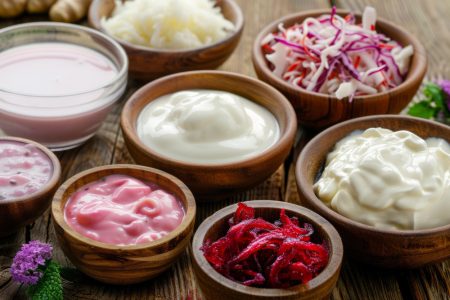Introduction
Understanding Digestive Health
Digestive health is a cornerstone of overall wellness, impacting everything from energy levels to immune function. For those curious about how to improve digestion, focusing on natural methods can offer both immediate relief and long-term benefits. When digestion is functioning smoothly, the body efficiently absorbs nutrients, supports immunity, and maintains energy. However, issues like bloating, constipation, and indigestion are common, and they can disrupt daily life. This is where learning how to improve digestion through gentle, natural solutions becomes essential.
Why Choose Natural Approaches?
Natural approaches to digestion prioritize simple lifestyle changes and nutrient-dense foods rather than relying on medications. While medication has its place in certain situations, many people find that adjusting their diet, hydration, and daily habits can lead to sustainable digestive health improvements. If you’re seeking guidance on how to improve digestion, incorporating natural remedies and mindful eating habits can make a noticeable difference. From hydrating well to adding fiber-rich foods and probiotics, natural methods offer a gentle yet effective way to maintain a balanced gut. This article provides ten practical tips to guide you toward healthier digestion and a happier gut, making it easier to enjoy meals and feel your best.
Affiliate Disclaimer
This blog post may include links to affiliate sites. If you click on an affiliate link and make a purchase, we may earn a small commission or receive other compensation at no extra cost to you. Please note that many of the links on our site are affiliate links. Our use of these links does not impact the products, services, or websites we recommend to you. This disclaimer covers all forms of communication with you, including our website, email, phone, social media, products, and other platforms.
Amazon Affiliate Disclaimer
We participate in the Amazon Services LLC Associates Program, an affiliate marketing program that allows us to earn fees by linking to Amazon.com and its affiliated sites. If you click on an Amazon affiliate link on our site and make a purchase, we may receive a small commission at no additional cost to you.
1. Eat a Fiber-Rich Diet
The Importance of Fiber for Digestive Health
Fiber is essential for a healthy digestive system, and incorporating it into your diet is a proven way to improve digestion naturally. For those wondering how to improve digestion, fiber plays a critical role. It supports gut health by adding bulk to stool, promoting regular bowel movements, and preventing constipation. Fiber also helps control blood sugar levels, lowers cholesterol, and supports a healthy weight, all of which indirectly benefit digestion. A fiber-rich diet can also contribute to a balanced gut microbiome, fostering beneficial bacteria that help break down food and produce vitamins essential for digestive health.
Types of Fiber: Soluble and Insoluble
Understanding the two main types of fiber—soluble and insoluble—can help you make better food choices that support digestion. Soluble fiber dissolves in water, forming a gel-like substance that slows digestion, allowing for better absorption of nutrients. This type of fiber is found in foods like oats, beans, apples, and carrots. It’s particularly helpful for individuals looking to improve digestion gently, as it aids in slowing the absorption of sugar and promotes fullness.

Insoluble fiber, on the other hand, does not dissolve in water and adds bulk to the stool, which helps food pass more quickly through the stomach and intestines. Foods like whole grains, nuts, seeds, and many vegetables are high in insoluble fiber. Including insoluble fiber in your diet can make it easier to manage common digestive issues, such as constipation and irregular bowel movements, enhancing overall gut health.
How Much Fiber Do You Need?
The recommended daily intake of fiber varies by age and gender. Generally, adults should aim for around 25-30 grams of fiber per day. This can often be achieved by incorporating more fruits, vegetables, legumes, and whole grains into your meals. However, increasing fiber intake gradually is essential, especially for those who may not be accustomed to a high-fiber diet. Abruptly adding too much fiber can lead to bloating and gas, which may be uncomfortable.
Tips for Adding More Fiber to Your Diet
- Start Your Day with Fiber: Begin your day with a fiber-rich breakfast, such as oatmeal topped with berries and chia seeds or a smoothie with leafy greens and fruits. This can help set a healthy tone for the day.
- Add Vegetables to Every Meal: Try adding vegetables to your lunch and dinner. Leafy greens, carrots, and bell peppers are excellent sources of both soluble and insoluble fiber.
- Choose Whole Grains: Opt for whole grains over refined grains. Brown rice, whole-wheat bread, and quinoa are great choices that provide more fiber.
- Snack on Fiber-Rich Foods: Nuts, seeds, and fruits like apples or pears make convenient, high-fiber snacks.
By focusing on fiber-rich foods, you’re taking a crucial step in learning how to improve digestion naturally. Consuming a balanced mix of soluble and insoluble fiber not only supports gut health but also promotes long-term digestive well-being, making fiber a cornerstone of a healthy diet.
2. Stay Hydrated
The Essential Role of Water in Digestion
Hydration is a fundamental aspect of digestive health and is key for those exploring how to improve digestion naturally. Water aids in breaking down food so the body can absorb nutrients efficiently. It also helps move waste through the intestines, making bowel movements easier and preventing constipation. For many, simply increasing water intake can relieve common digestive discomforts, as it helps maintain the smooth function of the digestive system. Without adequate hydration, the digestive process can become sluggish, leading to issues such as bloating, constipation, and irregular bowel movements.

How Much Water Do You Need?
The ideal amount of water varies based on age, activity level, and climate, but a good rule of thumb is to aim for around eight 8-ounce glasses (about 2 liters) of water per day. Older adults, in particular, may need to be mindful of staying hydrated, as the sensation of thirst can diminish with age. If you’re trying to learn how to improve digestion, remember that consistent hydration is one of the simplest and most effective strategies.
Tips for Staying Hydrated
- Start with Water in the Morning: Begin each day with a glass of water. This can help jumpstart digestion and rehydrate the body after a night’s rest.
- Carry a Water Bottle: Keeping a water bottle handy makes it easier to sip water throughout the day, ensuring you meet your hydration goals without needing to track every glass.
- Incorporate Hydrating Foods: Many fruits and vegetables, like cucumbers, melons, and oranges, have high water content. Adding these to your meals can contribute to your overall hydration.
- Drink Between Meals: While water with meals is fine, drinking water between meals can support digestion by helping move food through the digestive tract without diluting stomach acids too much.
Staying hydrated is a crucial part of understanding how to improve digestion. Regular water intake supports nutrient absorption, eases digestion, and helps prevent common issues, making it an essential, easy-to-adopt habit for better digestive health.
3. Incorporate Probiotics and Fermented Foods
Understanding Probiotics and Their Role in Digestion
For those looking into how to improve digestion, probiotics are a valuable addition to the diet. Probiotics are beneficial bacteria that support a balanced gut microbiome, which plays a crucial role in breaking down food, absorbing nutrients, and defending against harmful pathogens. A balanced microbiome can help alleviate common digestive issues like bloating, gas, and irregular bowel movements. By consuming probiotic-rich foods regularly, you’re nurturing this community of beneficial bacteria, which can enhance overall gut health and improve digestion.

Best Sources of Probiotics
Adding probiotic-rich foods to your diet is simple and tasty. Foods like yogurt (especially those with live and active cultures), kefir, sauerkraut, kimchi, and miso are excellent sources of probiotics that can help strengthen the digestive system. For those interested in how to improve digestion naturally, these foods provide a gentle way to boost gut health without needing supplements.
Another popular option is kombucha, a fermented tea with probiotics. Additionally, fermented pickles and tempeh offer diverse probiotic strains and flavors, making it easy to incorporate them into various meals.
Tips for Adding Probiotics to Your Diet
- Include Probiotics at Breakfast: Start your day with probiotic-rich yogurt or kefir. You can add fruit or oats for a fiber boost, which complements probiotics to support digestive health.
- Add Fermented Foods to Main Meals: Include a small serving of sauerkraut or kimchi as a side dish. These foods enhance flavor while contributing to a healthier gut.
- Try Kombucha as a Refreshing Drink: Replacing sugary drinks with kombucha can reduce sugar intake while supporting digestion.
Incorporating probiotics is a key step for anyone exploring how to improve digestion. Regularly including these foods supports a balanced gut, improves digestion, and enhances overall wellness.
4. Limit Processed Foods and Sugar
The Negative Impact of Processed Foods on Digestion
When considering how to improve digestion, reducing processed foods and sugar intake is an important step. Processed foods often contain additives, preservatives, and high amounts of refined sugar, all of which can disrupt the balance of gut bacteria and slow digestion. These foods are typically low in fiber, essential nutrients, and water content, which are critical for maintaining a healthy digestive system. High sugar consumption can also promote the growth of harmful bacteria in the gut, leading to digestive issues like bloating, gas, and irregular bowel movements.

How Processed Foods Affect Gut Health
Processed foods and sugary snacks can cause blood sugar spikes, leading to energy crashes and increased cravings. Over time, these cycles can negatively impact gut health by feeding harmful bacteria and starving beneficial ones. A diet high in processed foods may also lead to inflammation in the digestive tract, worsening symptoms for those who experience digestive discomfort. For anyone exploring how to improve digestion, replacing processed snacks with nutrient-dense whole foods can be a simple yet powerful change.
Tips for Reducing Processed Foods and Sugar
- Choose Whole, Unprocessed Foods: Focus on whole foods like fresh fruits, vegetables, nuts, and whole grains. These foods are naturally rich in fiber, vitamins, and minerals, all of which support digestive health.
- Read Ingredient Labels: If you buy packaged foods, look for options with minimal ingredients and low added sugar content. Avoid items with unfamiliar additives and preservatives.
- Swap Sugary Snacks for Healthier Options: Instead of candies or pastries, opt for fruit, Greek yogurt, or nuts. These options satisfy sweet cravings while providing fiber and beneficial nutrients.
Reducing processed foods and sugar is a practical approach for anyone focused on how to improve digestion. A diet rich in whole, minimally processed foods supports a healthier gut, leading to more regular digestion and a balanced microbiome.
5. Eat Mindfully and Chew Thoroughly
The Importance of Chewing for Digestion
When thinking about how to improve digestion, many people overlook one of the simplest actions: chewing. Chewing food thoroughly is the first step in the digestive process and plays a crucial role in how the body processes and absorbs nutrients. Breaking down food in the mouth allows enzymes in saliva to start digesting carbohydrates, making the job easier for the rest of the digestive tract. Swallowing large, inadequately chewed pieces of food can lead to bloating, gas, and discomfort, as the stomach has to work harder to break down the food into manageable pieces.
How Mindful Eating Supports Better Digestion
Mindful eating is about focusing on the experience of eating, which includes chewing each bite thoroughly and paying attention to the flavors, textures, and sensations of food. Practicing mindfulness at meals allows the body to enter a relaxed state, which can enhance digestion. For those exploring how to improve digestion naturally, slowing down and being intentional with each bite can lead to improved satisfaction and less digestive discomfort.
Tips for Practicing Mindful Eating and Chewing
- Take Small Bites: Instead of large bites, take smaller portions to ensure each piece is easier to chew thoroughly.
- Chew Each Bite 20-30 Times: Aim to chew each bite around 20 to 30 times. This may seem excessive, but it allows food to break down effectively and promotes easier digestion.
- Avoid Distractions During Meals: Put away phones and turn off the TV. Focusing on the meal can make it easier to eat mindfully and chew each bite thoroughly.
- Take Deep Breaths Before Eating: A few deep breaths can help calm the mind and body, promoting a relaxed state that benefits digestion.
By practicing mindful eating and thorough chewing, you’re setting up your digestive system for success. Simple changes like these can be incredibly effective for those interested in learning how to improve digestion without complex adjustments.
6. Manage Stress Levels
The Gut-Brain Connection and Digestion
Understanding the connection between stress and digestion is crucial for those seeking guidance on how to improve digestion. The gut and brain communicate closely through the gut-brain axis, which means that mental and emotional stress can directly impact digestive health. When stressed, the body’s “fight-or-flight” response activates, diverting energy away from non-essential functions, including digestion. This can slow down the digestive process, leading to symptoms like bloating, stomach cramps, constipation, or diarrhea. Chronic stress can even exacerbate digestive issues like irritable bowel syndrome (IBS) and acid reflux, making stress management a valuable tool for anyone interested in maintaining a healthy gut.
Benefits of Stress Reduction for Digestion
Reducing stress supports a balanced digestive system by helping the body stay in a relaxed state, which is more conducive to digestion. A calm, restful state enables the stomach and intestines to work efficiently, supporting nutrient absorption and regular bowel movements. Learning how to improve digestion often involves adopting practices that lower stress levels, leading to both immediate and long-term digestive benefits.

Techniques for Managing Stress
- Practice Deep Breathing: Deep breathing exercises activate the body’s relaxation response, reducing stress and aiding digestion. Try taking a few deep breaths before meals to help your body ease into digestion.
- Incorporate Mindfulness or Meditation: Practicing mindfulness or meditation daily can help decrease stress over time. Even a few minutes of meditation can lower stress hormones and support digestive health.
- Exercise Regularly: Light activities like walking, yoga, and stretching not only improve mood but also stimulate digestion by promoting movement in the intestines.
- Set Aside Time for Relaxation: Make time in your day for activities you enjoy, such as reading, listening to music, or spending time with loved ones, which can help reduce stress levels.
Effectively managing stress is a key factor in understanding how to improve digestion. By integrating stress-reduction techniques, you can promote a healthier, more balanced digestive system, which ultimately supports overall well-being.
7. Get Regular Physical Activity
Exercise and Its Positive Impact on Digestion
Regular physical activity is one of the most effective lifestyle habits for those looking into how to improve digestion naturally. Exercise helps stimulate the muscles in the digestive tract, which encourages food to move efficiently through the system and supports regular bowel movements. Physical activity increases blood flow to the digestive organs, promoting optimal function. Additionally, movement can reduce symptoms like bloating and constipation and help manage digestive disorders such as irritable bowel syndrome (IBS). A consistent exercise routine, especially one that includes moderate and gentle forms of activity, can significantly support long-term digestive health.

Types of Exercises That Aid Digestion
Not all exercise needs to be intense to benefit digestion. In fact, mild to moderate activities can often be more effective for those focused on how to improve digestion without stressing the body. Walking, stretching, and gentle yoga are excellent choices. These activities help stimulate digestion by increasing blood flow to the gut and activating muscles in the abdomen. Certain yoga poses, such as twists and gentle inversions, can massage the internal organs and ease digestive discomfort.
Tips for Adding Digestive-Friendly Activity to Your Routine
- Take a Short Walk After Meals: A 10-15 minute walk after meals can encourage digestion and prevent bloating. Walking is gentle on the body and can be easily integrated into daily life.
- Practice Yoga for Digestion: Specific yoga poses like seated twists, child’s pose, and cat-cow can relieve gas and support digestion. Try incorporating a few poses in the evening or after meals.
- Stay Consistent with Moderate Exercise: Aim for at least 30 minutes of physical activity most days of the week. Consistency is key to reaping the digestive benefits of exercise.
- Engage in Core Exercises: Strengthening core muscles with light exercises can support the digestive organs and improve posture, which also benefits digestion.
Regular physical activity is essential in understanding how to improve digestion effectively. With simple, consistent movement, you can support a healthy digestive system, improve comfort, and enhance your overall quality of life.
8. Avoid Eating Large Meals Before Bed
The Impact of Late-Night Eating on Digestion
For those wondering how to improve digestion, meal timing can be just as important as food choices. Eating large meals shortly before bedtime can disrupt the digestive process, as lying down can make it harder for the stomach to process food efficiently. When you eat a heavy meal before sleep, digestion slows down, which can lead to discomfort, indigestion, and even acid reflux, as stomach acid may back up into the esophagus. Over time, late-night eating habits can contribute to poor digestive health, making it more challenging to maintain regularity and comfort.

How Meal Timing Can Support Digestion
Having your last substantial meal at least 2-3 hours before bed allows your body to digest most of the food while you’re still upright, using gravity to support the natural downward movement of food. This practice can help alleviate common nighttime digestive issues and improve the overall efficiency of your digestive system. Adjusting the timing of your meals is a simple but effective change for anyone looking into how to improve digestion without drastic dietary shifts.
Tips for Avoiding Large Meals at Night
- Opt for Smaller Portions in the Evening: Instead of a heavy dinner, try a lighter meal with lean proteins, vegetables, and healthy fats. This can be easier on your digestive system before bed.
- Avoid Known Trigger Foods at Night: Foods high in fat, caffeine, and spice can aggravate digestion, particularly before sleep. Save these for earlier in the day if possible.
- Try a Soothing Herbal Tea Instead: If you’re feeling hungry close to bedtime, consider a warm cup of herbal tea, like chamomile or peppermint, which can be calming and aid digestion.
- Establish a Consistent Eating Schedule: Aim for regular meal times throughout the day, which can help regulate hunger and reduce the temptation for late-night eating.
Avoiding large meals before bed is a simple yet powerful strategy for understanding how to improve digestion. By giving your body time to process food well before sleep, you can reduce discomfort and support a healthier, more efficient digestive system.
9. Consider Herbal Teas and Natural Digestive Aids
The Benefits of Herbal Teas for Digestive Health
For those exploring how to improve digestion, herbal teas can provide a soothing, natural remedy to support the digestive process. Herbal teas like ginger, peppermint, and chamomile are known for their ability to ease digestive discomfort, reduce bloating, and stimulate digestion. Ginger tea, for example, has anti-inflammatory properties that can calm the stomach, while peppermint tea is well-known for its ability to relieve gas and bloating by relaxing the muscles of the gastrointestinal tract. Chamomile tea, often used for relaxation, also has mild anti-spasmodic effects, which can help soothe the stomach and reduce indigestion.

Other Natural Digestive Aids
In addition to herbal teas, natural digestive aids like apple cider vinegar and aloe vera juice have gained popularity as gentle ways to support digestive health. Apple cider vinegar, when diluted with water and consumed before meals, can help stimulate stomach acid production, promoting better digestion and reducing symptoms like acid reflux. Aloe vera juice, known for its anti-inflammatory properties, can soothe the digestive tract and aid in alleviating symptoms of constipation.
Tips for Using Herbal Teas and Digestive Aids
- Drink Ginger or Peppermint Tea After Meals: Sipping on these teas after a meal can help stimulate digestion and reduce bloating, making meals more comfortable to digest.
- Try Apple Cider Vinegar Before Meals: Mix a tablespoon of apple cider vinegar with water and drink it 15 minutes before eating. This can help prepare the stomach for digestion by boosting acid levels.
- Incorporate Aloe Vera Juice as Needed: If you experience digestive discomfort or constipation, try a small amount of aloe vera juice to soothe the digestive tract. However, start with a small dose to see how your body responds.
- Create a Relaxing Routine with Herbal Tea: Herbal teas can be incorporated into an evening routine, helping you relax and unwind while supporting digestion.
Herbal teas and natural digestive aids are simple, gentle additions for those interested in how to improve digestion naturally. Regularly using these remedies can support a calm, well-functioning digestive system, helping to manage common discomforts and promoting a healthy gut.
10. Listen to Your Body’s Signals
The Importance of Tuning Into Digestive Cues
For those curious about how to improve digestion, learning to recognize and respond to your body’s signals can be transformative. Digestive health is highly individual, and understanding your body’s reactions to certain foods, portion sizes, and meal timings can help you avoid discomfort and enhance digestion. Ignoring signs like bloating, gas, or fatigue after meals can often lead to repeated digestive issues. Instead, paying close attention to how specific foods affect you can guide better food choices and meal practices that support your unique digestive needs.
Recognizing and Adjusting to Food Sensitivities
Food sensitivities and intolerances are common and can significantly impact digestion. Foods like dairy, gluten, and certain high-fiber vegetables (like broccoli and beans) may cause discomfort in some individuals. If you notice recurring symptoms, consider experimenting with an elimination diet or keeping a food journal to track your responses to different foods. For those aiming to learn how to improve digestion, identifying and limiting problematic foods can reduce symptoms and promote a more balanced digestive experience.
Tips for Listening to Your Body’s Digestive Signals
- Eat Slowly and Mindfully: Eating mindfully allows you to better recognize feelings of fullness and satisfaction, preventing overeating and reducing digestive strain.
- Keep a Food Diary: Track what you eat and any symptoms you experience. Over time, this can reveal patterns and help you identify foods that might be causing discomfort.
- Adjust Portion Sizes as Needed: Eating large portions can sometimes overwhelm the digestive system. If you feel discomfort after meals, try eating smaller, more frequent meals throughout the day.
- Notice and Respect Hunger Cues: Avoid eating out of boredom or stress. Eating when you’re truly hungry, rather than based on habit or emotions, can make digestion more efficient and comfortable.
By listening to your body’s signals, you gain valuable insights into how to improve digestion on a personalized level. This mindful approach not only helps reduce digestive discomfort but also encourages healthier, more intuitive eating habits that support long-term digestive well-being.
Conclusion
Improving digestion naturally is a journey of small, consistent changes that can make a significant difference in how you feel and function every day. By focusing on practical, achievable steps—such as eating a fiber-rich diet, staying hydrated, managing stress, and incorporating probiotics—you’re addressing core aspects of digestive health in a gentle, sustainable way. For those wondering how to improve digestion, these ten tips provide a holistic approach that supports not just your gut but also overall well-being. Remember, everyone’s digestive system is unique, so it’s essential to find what works best for you. Listening to your body’s signals and making mindful choices at each meal can empower you to enjoy food without discomfort. As you incorporate these habits gradually, you’ll likely experience greater comfort, energy, and vitality, proving that natural, simple steps can lead to a happier, healthier gut and life.


